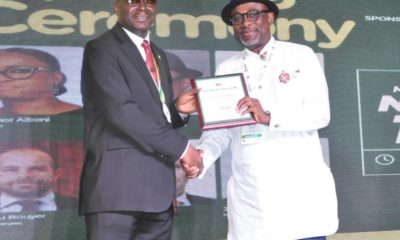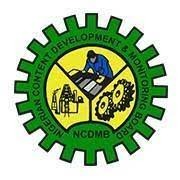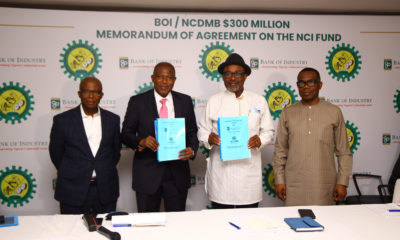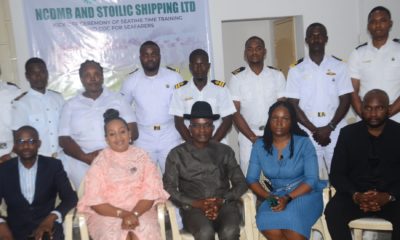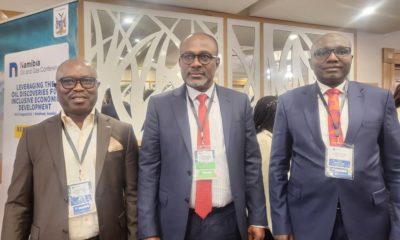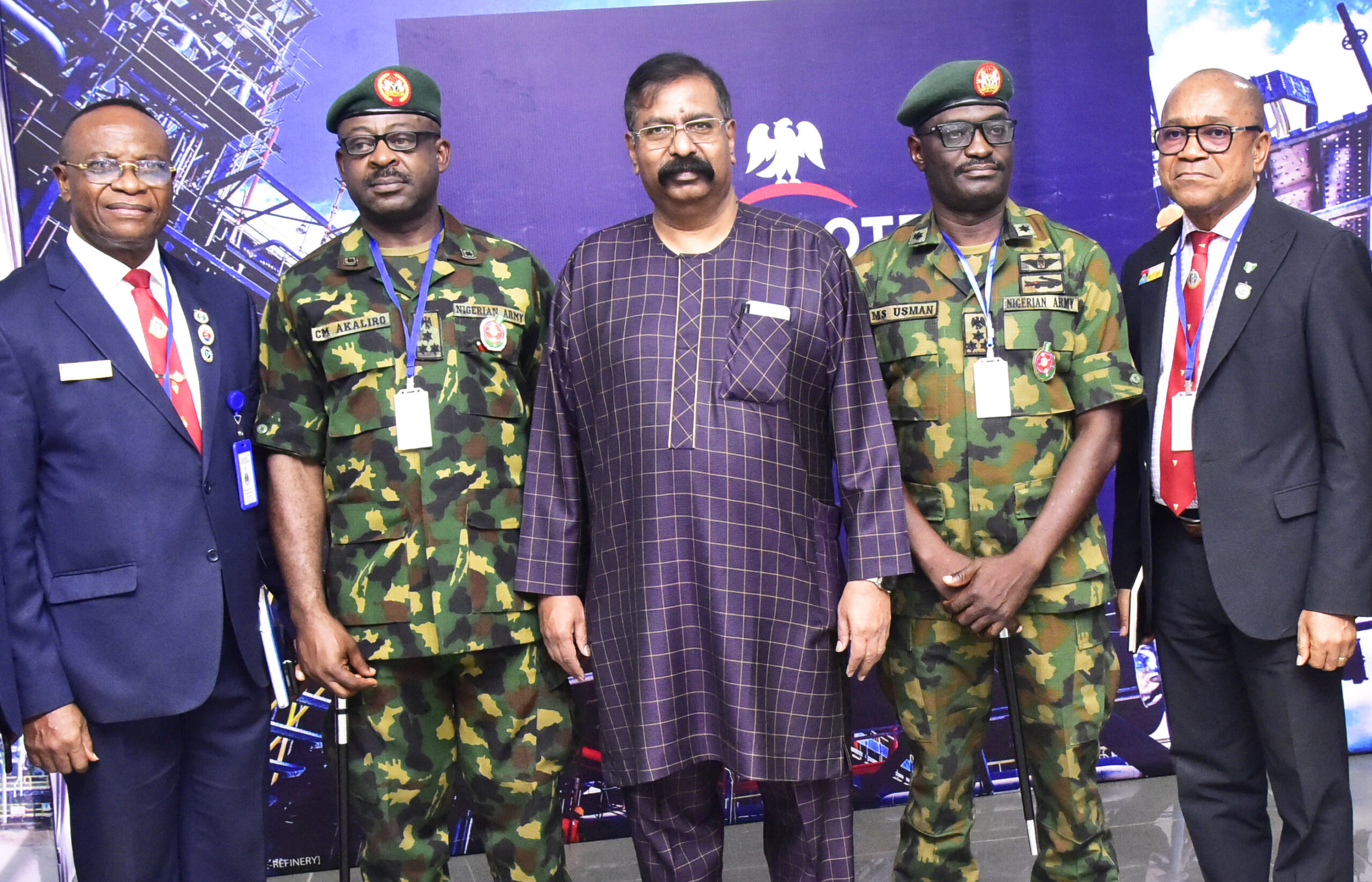Energy
NCDMB boosts technology-enhanced learning in Akwa Ibom, commissions three ICT Centres

In a deliberate effort to deepen Internet penetration and digital education in the country, the Nigerian Content Development and Monitoring Board (NCDMB) on Tuesday commissioned three state-of-the-art Information and Communication Technology (ICT) Centres, with dedicated broadband Internet, in three rural secondary schools in Akwa Ibom State.
The benefiting institutions are Girls High School, Ikot Ibiok, Northern Annang Secondary Commercial School, Utu-Etim-Ekpo, and Government Technical College (GTC), Ikot Uko-Ika. For each of the schools a dedicated block, fully air-conditioned and well-secured with protectors and reinforced metal windows, serves as the ICT Centre.
Each of the Centres has 31 units of desktop computers, 31 purpose-built desks and 31 seats, two stools, 25 solar panels (already installed), two 20kVA inverters with 30 pieces of battery, a 20kVA generator, a server unit, a printer and a scanner, a router and a dish for Internet services, and a giant smart screen display board with vast teaching and learning potentials.
They represent the latest in the initiatives of the NCDMB in capacity building, with over 15 million training manhours already recorded in diverse skills acquisition and empowerment programmes since the Nigeria Oil and Gas Industry Content Development (NOGICD) Act, 2010, came into effect. Many of the 13,000 beneficiaries so far have become successful professionals and entrepreneurs in the industry and related sectors of the economy, including the maritime.
The Executive Secretary, NCDMB, Engr. Simbi Kesiye Wabote, told Management and staff of Girls High School that the mandate of the Board centres on local capacity development and that it has a deliberate policy to make students familiar with digital tools for learning as a way of enhancing their competitiveness as they progress in education. According to him, the policy is “catch them young,” which means stimulating their interest in the sciences and engineering at an early age so they could pursue careers in those disciplines as they grow up.
In pursuit of that policy, he explained, the Board is also deliberately promoting science, technology and mathematics (STEM) education in secondary schools across the country to guarantee the development of indigenous manpower to secure the future of the country’s oil and gas country.
The NCDMB boss, who was represented by the Board’s General Manager, Corporate Communication and Zonal Coordination, Mrs. Angela Okoro, said the ICT Centres would make it possible for the students to have access to the current state of knowledge in all subject areas, as the smart screen and dedicated broadband Internet provide access to the latest publications and research results. The Centres also guarantee recognition by the West African
Examinations Council (WAEC) for teaching of ICT-related subjects and the students would be able to prepare and sit for various external exams.
In his own remarks, the NCDMB Zonal Coordinator for Akwa Ibom and Cross River States, Mr. Uduak Obot, said, “It is a thing of joy to start a thing and complete it,” recounting how work on the ICT Centres began few months ago and had thus far been completed. He thanked the principal and staff of the school as well as the contractor of the project for their efforts and quality work.
He told the students that “the oil and gas industry is knowledge-based” and that they “must be ICT-savvy” to be sufficiently competitive in that sector. The ICT Centre, he emphasised, elevates the standard of the school, and children of the masses now have access to digital tools that only their counterparts in the expensive private schools have been enjoying over time.
According to him, the dedicated broadband Internet now provided “will enable students to read any book anywhere in the world,” a fact that makes the facility a library of an advanced nature. Their studies would no longer be hampered by lack of money to buy books or non-availability of required texts from local bookshops.
His charge to the Management and students of the school as well as the host community: “Take full advantage of the facilities; take ownership,” adding: “NCDMB will be checking on the Centre from time to time.” He assured the school that experts would soon be sent by NDCMB, to train all the teachers on how to use the smart screen provided.
The principal, staff and students as well as the Ikot-Ibiok community thanked the NCDMB profusely for establishing such a Centre at their school, assuring the Board that they would ensure the safety of the facilities. A spokesperson for the community, Obonganwan Ekaette Nduese Essien, wife of a former Minister of Lands, Housing and Urban Development, said the commissioning was a historic development for the community as it had raised the standard of the school.
The octogenarian recounted how girl-children of the community had been so disadvantaged in the past, without opportunity for secondary school education, until the establishment of the Girls High School. The ICT Centre, she enthused, means young girls would be able now to get the best education without having to travel to distant places..
At Northern Annang Secondary Commercial School and the Government Technical College, NCDMB restated its history and mandate, and explained the importance of the ICT Centres donated to the schools. The Managements of the schools, students and communities were equally appreciative and wished the NCDMB success in all its endeavours. They all promised to protect the facilities.
Other Management staff of the NCDMB at the events included Engr. James Eyefigha (Zonal Coordinator, Edo/Delta), Dr. Emmanuel Ohanyere (Zonal Coordinator, Imo/Abia), Mr. Dala Asangolo (Zonal Coordinator, Rivers/Bayelsa), and Mr. Joseph Adebayo, Project Manager/Zonal Coordinator, Headquarters).
Energy
How Savannah Energy Generated Gross Income Of $320m In 2024

. . . Insights On FY25 Plans For Nigeria, Niger
Savannah Energy PLC, the British independent energy company focused around the delivery of Projects that Matter, has offered a comprehensive update on its operating performance and outlook, while also outlining its FY25 plans for the existing portfolio in Nigeria and Niger.
These were detailed in a statement on Tuesday in Lagos by Communications Manager, Okwudili Onyia.
The update shows that its gross production in Nigeria has averaged 22.7kboe/d (88% gas; flat YoY), generating Total Income of $320m and Adj. EBITDA (including other operating income) of $257m in the 10-months to end-October, up from $233m and $202m respectively in H1 FY24A.
It revealed that the company’s midstream subsidiary, Accugas Limited has now drawn NGN279bn under its new NGN340bn transitional debt facility, with proceeds used to pay down its US$ facility.
“The facility should be fully drawn by year end, with management requesting an increase in the size of the facility to enable the remaining $225m balance to be converted into Naira,” it added.
It was gathered that this process, when complete, will align Accugas’ debt facility with the currency in which gas revenues are received, while the company also continues to advance its plans for a potential long-dated domestic bond issuance to ultimately replace the NGN transitional facility.
The Chief Executive Officer of Savannah Energy, Andrew Knott, said, “I am pleased to provide an operational and financial update which demonstrates the continued progress we have made as a business in 2024. 2025 is clearly going to be an exciting year for our Company: we have a large operational programme in Nigeria which is expected to enhance both our oil and gas production levels and capacity; we intend to progress our R3 East oil development project in Niger; we continue to pursue key acquisitions in the upstream oil and gas space; and we expect to announce plans significantly expanding our renewable energy business. Fundamentally, Savannah remains unequivocally an “AND” company, seeking to deliver strong performance both for the short AND long term across multiple fronts, and pursuing growth opportunities in both the hydrocarbon AND renewable energy sectors.”
According to the update, the company’s US$45 million Uquo Central Processing Facility (“Uquo CPF”) compression project in Nigeria is right on track for completion of construction before year-end, with commissioning taking place in Q1 2025, enabling the expansion of gas production in the medium term, with FY25F gas volumes expected to remain broadly flat YoY.
There are also plans to drill an additional Uquo development well and exploration well in H2 FY25. The transaction to increase Savannah’s ownership of the Stubb Creek asset to 100% for $61.5m is now scheduled to complete in Q1 FY25. Savannah has signed a new $60m RBL facility with The Standard Bank of South Africa Limited and Stanbic IBTC Bank Limited to fund the transaction and continues to plan for an expansion of oil production from the field.
In Niger, Savannah continues to seek to progress its 35 MMstb (Gross 2C Resources) R3 East oil development in South-East Niger. During 2024, it sought to optimise the development plan for the R3 East Area and, whilst there is no change to its resources estimate, it now forecasts a peak potential production of approximately 10,000 bopd (vs 5,000 bopd in the previous plan). Savannah’s estimates of the forecast PV10 value of the R3 East development project has also increased from US$150 million to US$210 million.
Savannah’s Renewable Energy Division remains focused on its target of 2GW+ pipeline of renewable energy projects by the end of FY26, up from c.700MW currently. A firm believer in Africa’s transition to renewable energy, Savannah has up to 696 MW of renewable energy projects currently in motion, including the up to 250 MW Parc Eolien de la Tarka wind farm project in Niger and the up to 95 MW Bini a Warak hybrid hydroelectric and solar project in Cameroon.
Energy
Port Harcourt Refinery Shuts Down, CDU Unit Operating Without PMS Production
The Nigerian National Petroleum Company Limited (NNPCL) has confirmed the shutdown of operations at its Port Harcourt refinery, with only the Crude Distillation Unit (CDU) currently running.
While the CDU continues to produce naphtha, kerosene, and diesel, it is unable to produce the necessary components for Premium Motor Spirit (PMS), commonly known as petrol, sources within the refinery disclosed to SaharaReporters.
This development follows weeks of conflicting reports about the refinery’s operational status.
READ MORE: Olajumoke Onibread Accuses Ex-Husband Of Assault, Career Sabotage
As recently as Tuesday, NNPCL had claimed that the refinery was fully operational and producing PMS.
However, reports revealed that only the outdated section of the refinery was running, and instead of producing petrol, it was blending “Crack C5” with naphtha to create a blended form of gasoline, which refinery staff warned could negatively affect vehicles.
Although blending is a standard industry practice, experts explained that the secondary units necessary for producing reformate – a key component of gasoline – have yet to be commissioned at the refinery.
“The CDU is still running but the operation of the depot is shut down at the moment,” a senior refinery official told SaharaReporters on Saturday.
“The CDU produces naphtha, diesel, and kerosene but cannot produce the component for the production of PMS.”
The refinery, with a 150,000 barrels-per-day capacity, is not expected to reach full production until 2026, contingent on securing the necessary funding.
“At the moment, the project has exceeded $2 billion,” the official added, pointing out that even if the CDU operates at full capacity, it can only produce limited quantities of these products, which are insufficient to meet national fuel needs.
Recall that on Tuesday, NNPCL had confirmed earlier reports that only the old Port Harcourt Refinery was operational and producing blended gasoline rather than actual PMS.
In a statement, NNPCL’s Chief Corporate Communications Officer, Olufemi Soneye, confirmed that the refinery was running at 70% of its installed capacity and producing 1.4 million liters of Premium Motor Spirit (PMS) daily, blended with Crack C5, a component sourced from Indorama Petrochemicals.
“It is worth noting that the refinery incorporates Crack C5, a blending component from our sister company, Indorama Petrochemicals (formerly Eleme Petrochemicals), to produce gasoline that meets required specifications,” Soneye said.
“Blending is a standard practice in refineries globally, as no single unit can produce gasoline that fully complies with any country’s standards without such processes.”
Despite these efforts, the continued shutdown of the refinery’s non-CDU units and the limited scope of its operations have raised concerns about Nigeria’s ability to meet its fuel demands.
NNPCL has reassured the public, however, that work on the new Port Harcourt refinery is progressing, with plans to bring it online in the near future.
Energy
NNPC Ltd’s New EVP Upstream, Charges Stakeholders On Corp Governance, Transparency
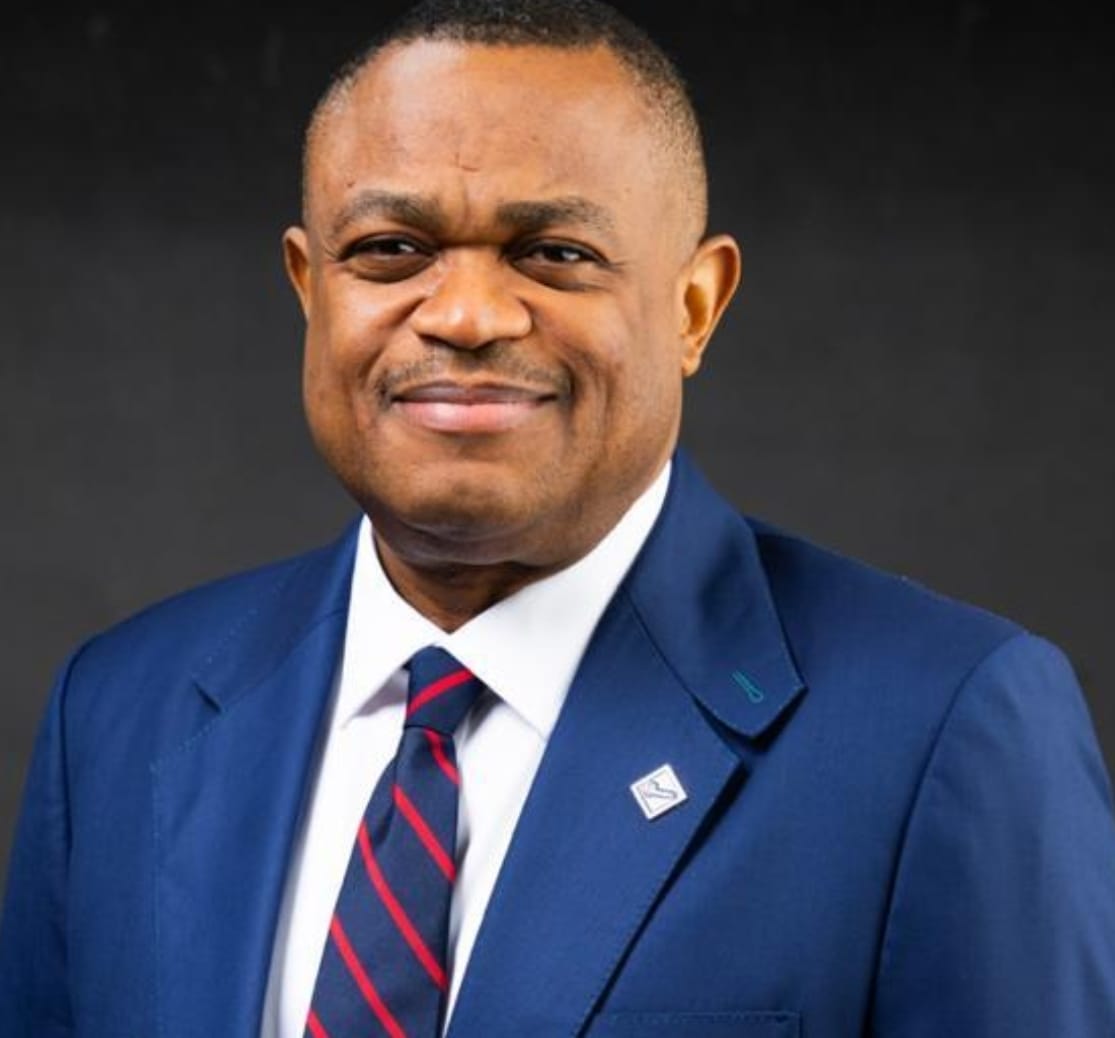
A call has gone to upstream stakeholders in Nigeria’s oil and gas industry to strengthen corporate governance, transparency and efficiency in their operations.
The charge was made on Tuesday, in Lagos, by the Executive Vice President, Upstream, The NNPC Ltd, Udobong Ntia.
Ntia shared his views during an Upstream Governance, Risk and Compliance Workshop themed “Enhancing Governance, Risk and Compliance in Nigeria’s Upstream Sector”.
Delivering his opening remarks at the workshop, Ntia stressed that governance, risk management, and compliance are at the foundation of NNPC Ltd’s core values of Integrity, Excellence, and Sustainability.
ALSO READ: Obi Congratulates NNPC Ltd On Port Harcourt Refinery
He commended the upstream leadership and regulators for supporting the initiative to assemble stakeholders to discuss issues that have a bearing on individual and collective success towards attaining the clear mandate of sustainably ramping up the nation’s crude oil production.
The EVP also reiterated his readiness to provide enablers within his purview that will accelerate the implementation of initiatives that will enhance governance, risk management and compliance in the upstream sub-sector.
The workshop had in attendance NNPC Ltd’s Chief Compliance Officer, Nasir Usman; NNPC Ltd’s Chief Upstream Investment Officer, Bala Wunti; representatives of industry regulators such as the Nigerian Upstream Petroleum Regulatory Commission (NUPRC); the Nigerian Content Development and Monitoring Board (NCDMB) and over 20 upstream operators from International Oil Companies in Nigeria.

